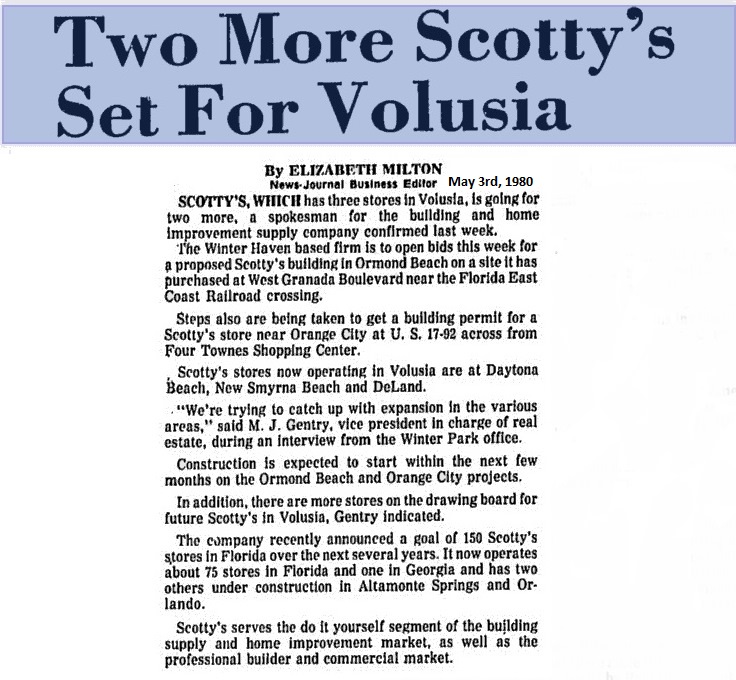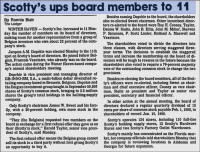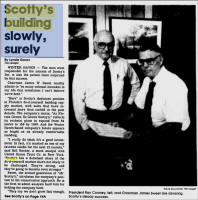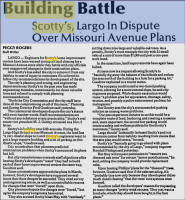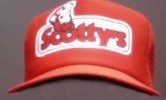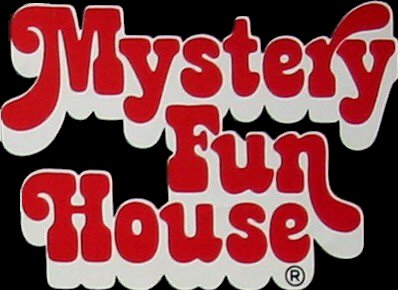Scotty's, Inc. History
Winter Haven, Florida 33882
U.S.A.
Telephone: (941) 299-1111
Fax: (941) 294-6840
Incorporated: 1925 as Home Builders Supply, Inc.
Employees: 7,000
Sales: $650 million (1996 est.)
SICs: 5251 Hardware Stores
Company History:
Scotty's, Inc. is a large hardware store chain, operating almost exclusively in Florida. It is one of the largest building supplies retailers in the country, and in Florida it is second only to the massive Home Depot chain. Scotty's operates over 100 stores. A few are so-called "superstores" of 40,000 to 50,000 square feet, while most are much smaller. The stores are found both in rural areas and in metropolitan neighborhoods. Scotty's has long specialized in the do-it-yourself home improvement market, selling to homeowners who prefer to do their own construction work rather than hire expensive contractors. This market segment grew enormously during the 1970s, when Scotty's was a publicly owned company on the New York Stock Exchange. About a third of Scotty's' sales currently come from professional builders, with the remainder coming from do-it-yourselfers and non-professional customers. Scotty's is now privately owned by a Belgian conglomerate, GIB.
Early History
Scotty's was founded in 1925 as Home Builders Supply, Inc. In 1968 the name was changed to Scotty's Home Builders Supply, Inc. Scotty's was a modest chain of hardware stores at that time, with less than 30 stores. Scotty's stores sold building materials and supplies, household fixtures, carpets, hand tools, and other typical hardware merchandise. Scotty's began to expand rapidly in the mid-1960s, with sales increasing twelvefold over a decade. Scotty's grew both by building new stores and by acquiring other building supply businesses. In 1970 Scotty's bought up both a lumber company in Punta Gorda, Florida, and a small chain of building supply stores in Ocala and Lake City. The next year Scotty's acquired Gator Lumber Company, and then bought a modular home manufacturer called Modu-Tech Structures, Inc., in Pembroke, Florida. Modu-Tech manufactured two models of prefabricated houses, a two-bedroom and a three-bedroom model. Modu-Tech was renamed Scotty's Instant Buildings, Inc., and operated as a subsidiary of Scotty's. The company bought more lumber yards and building supply retailers, including the $100,000 purchase of Truitt Building Supplies in Wauchula, Florida, in 1972. In 1973 the company changed its name from Scotty's Home Builders Supply to simply Scotty's, Inc., and the next year the company was listed on the New York Stock Exchange. Sales in 1974 were $80 million, and the firm now operated over 50 stores.
Scotty's had its eye on expansion, and suffered only one bad year in the 1970s. Fiscal 1975 brought a sharp downturn to the U.S. economy, and builders were particularly hard hit, as new home sales came to a standstill. Scotty's, which had traditionally catered to people who improved or rebuilt their existing homes, was also surprisingly affected by the recession. Even the do-it-yourselfers apparently put off building projects, and sales at Scotty's took an unexpected 25 percent dip. The company was building six to eight new stores a year, and in 1975 already had bought land for 12 new Scotty's. But the recession stalled these plans. Nevertheless, the company went ahead with a huge new computerized warehouse at its headquarters in Winter Haven, Florida. The warehouse and distribution center, which opened in January 1975, was a vast 160,000 square feet, able to store 65 percent of the inventory of the whole Scotty's chain. Inventory was handled by a central computer, which simplified ordering and made it easier to keep all the chain's stores well stocked. Perhaps the biggest advantage of the new warehouse was that it put less of a space burden on Scotty's individual stores. They did not need space to store their inventory, since it was being held for them centrally at Winter Haven, and thus new stores could be built smaller. This was to cut Scotty's construction costs by as much as 60 percent, and also reduce operating overhead.
Scotty's was one of a group of hardware chains that catered to the do-it-yourself builder, and it was followed lovingly on Wall Street because of high profits and enthusiastic projections. Scotty's benefited from several building trends in the late 1970s. By that time, more than half of U.S. housing was over 20 years old--the age when most houses start needing significant repairs and improvements. Scotty's customers were part of this growing group of homeowners with aging shelters, and so its customer base naturally increased. About 65 percent of Scotty's customers were people doing their own repair work, and the stores tried to make it easier for amateurs, with salespeople who could not only sell them the materials but provide basic instruction as well. Rising mortgage rates were also to some extent good for Scotty's. As mortgage rates climbed, more people were tempted to add on to their existing homes rather than buy new ones, and these people, too, became Scotty's customers.
Scotty's also benefited from a building boom localized in Florida, which gave the hardware chain an expanding pool of new home builder customers. Thousands of workers flocked to central Florida to work on the expansion of Disney World and other large construction projects there, and these people then needed housing. Scotty's was able to sell lumber to contractors making new houses, as well as to weekend refurbishers.
Aging housing, rising mortgage rates, and the influx of workers all contributed to profits at Scotty's that at times took astonishing leaps. For example, in fiscal 1978 Scotty's earnings increased 90 percent. Total sales were $156 million, almost double what they had been when the company was listed on the stock exchange four years earlier. The chain had grown to almost 70 stores, and plans were in place to grow to 100 over the next five years.
Challenges in the 1980s
Scotty's continued to rack up impressive increases in both sales and profits into the early 1980s, despite a more difficult business climate. Scotty's was dependent on home builders, and building rates were tied in large part to interest rates. As interest rates topped 12 percent in the early 1980s, building slowed. But because a significant percentage of Scotty's business came from the do-it-yourself market, its sales were not deeply hurt. Sales topped $200 million in 1979, and came to almost $250 million the next year. This was in spite of Scotty's management's complaints about a slackening home building market and troubling interest rates. A little less than 40 percent of the company's sales and profits came from building products, just over a quarter came from lumber and plywood, and miscellaneous other categories, such as plumbing supplies and lawn and garden goods, accounted for the rest.
Scotty's was increasing the number of its stores by about 10 percent a year, and one reason for its sales success was its profitable store opening galas. The company heavily promoted grand openings, and made them into three-day events. These galas were apparently well attended, and sales figures during openings sometimes ballooned extraordinarily. In 1981 the Scotty's chain had 81 stores, and single-day sales chainwide had never broken $2 million. But one grand opening weekend, the chainwide sales came in at $5.6 million, breaking the previous record rather impressively.
Though sales continued to increase as the chain grew, profits could not always keep pace. And beginning in 1982, Scotty's faced competition from national chains, which built up rapidly in Florida. The two chief competitors were Mr. HOW Warehouse and Home Depot. These national chains operated huge, brightly lit, fully air-conditioned stores that had tons of shelf space and stocked many more items than Scotty's. Between 1982 and 1985, Home Depot and other Scotty's competitors opened more than 2.5 million square feet of hardware and home center stores in Florida. By the mid-1980s it was not unusual to find four different building supply stores at a single intersection in some urban areas. These new stores tended to make Scotty's look old-fashioned, and Scotty's had to invest heavily in a redesign program. The typical Scotty's store before the influx of competitors had a split floor plan, with an air-conditioned selling space and then a much larger, nonair-conditioned warehouse. Scotty's began to build its new stores larger, with more air-conditioned space, larger displays, brighter graphics, and more items for sale. Scotty's also remodeled or rebuilt existing stores to conform with the new design.
By 1985, the Scotty's chain had grown to 113 stores, still almost entirely in Florida. Sales were at $425 million, though heavy investment in new stores and in redesigning old ones ate into profits. The company built a new data center for $2.5 million at its Winter Haven headquarters. The data center linked with the individual stores' point-of-sale terminals, so the chain could keep better track of daily sales and inventory needs. Scotty's also opened a new manufacturing plant in Winter Haven in 1985. This factory made trusses, vanities, and prehung doors that were then sold under Scotty's private label. Scotty's also extended its private label to a variety of items, from measuring tapes to cow manure. Many of these private label items were imports. The imports were mostly inexpensive, but because they did not have familiar brand names, they were put under the Scotty's label.
New Scotty's stores increased the total number of s.k.u.'s (shelf-keeping units) they stocked, typically from about 10,000 units to 13,000. This still lagged far behind Home Depot, which often stocked as many as 40,000 items. Scotty's also changed by expanding into some new product categories such as housewares, pet products, and auto parts. These improvements were made under pressure from Scotty's competitors. But one way in which Scotty's remained distinct from Home Depot and the other home center chains was in the size of stores. Scotty's did open some large warehouse stores, but most of its new buildings were 49,000 square feet and under. Scotty's management decided it was wiser to have a lot of smaller stores, especially in densely populated urban areas, than to build big stores that depended on customers driving long distances.
Transition into the 1990s
Scotty's had been on the New York Stock Exchange since 1974. Since 1979, some of its stock had been owned by a Belgian conglomerate, GIB Group. GIB was a retailer, with investments in a variety of U.S. hardware firms. In 1988, GIB bought up a large chunk of Scotty's stock which had been owned by former Scotty's president James Sweet. The purchase of Sweet's shares brought GIB's ownership to 43 percent. A year later, GIB bid $15 a share for all the remaining Scotty's stock. Scotty's became a private subsidiary, fully owned by the Belgian company. GIB also owned all or part of several Midwestern hardware chains such as Handy Andy and Central Hardware. At the time of the sale to GIB, Scotty's had grown to 162 stores. The chain was about even with Home Depot, each with roughly a 35 percent share of the home building supply retail market in Florida. However, the company was not performing strongly. It did not have the breadth of products Home Depot and the other national chains had. Scotty's stores also closed on Sundays, cutting weekend sales badly. Under new ownership, Scotty's received a new chief executive, Daryl Lansdale. Lansdale had been head of home center retail operations for W.R. Grace & Co, and he set out to correct some of Scotty's problems. Lansdale ordered a remodeling campaign, making some stores bigger, and closing down poorly performing stores. Lansdale doubled the variety of items sold in the chain's biggest stores, and increased the amount of air-conditioning. Some stores added a drive-through lumberyard, so customers could shop without leaving their cars. By 1994, Scotty's rebuilt 35 stores and increased the amount of merchandise in 50 others. Following Home Depot's lead, Scotty's began to emphasize the interior design aspect of home improvement by offering a bigger variety of fashion-conscious products. Scotty's also began putting out pamphlets with advice and instructions for do-it-yourself projects. Though it had long courted the do-it-yourself customer, the pamphlets were something learned from Home Depot. Scotty's also sponsored a Scotty's Contractor School offering a course in contracting that met state licensing requirements. The school was also a valuable marketing tool.
In spite of these changes, the profit picture at Scotty's was far from its double-digit heyday in the 1970s. By 1996, Home Depot passed up Scotty's in the Florida home building supply market. Scotty's was still one of the largest chains in the nation, ranked 13th overall. But Scotty's had dominated the Florida market for decades, and it did not seem a good sign that the chain now had to settle for being number two. In reaction, Scotty's Belgian owner fired CEO Daryl Lansdale and brought in Thomas Morris, a former executive at Sears, Roebuck. GIB's sudden action was tied to slipping sales at Scotty's--they dropped 1.2 percent in 1996--and to pressure in Europe to cut costs. When Morris took over, one of his first initiatives was to weed out excess expenses and simplify store operations. He abandoned Scotty's radio advertising and closed the corporate customer service department. Morris also hired a consulting firm to come up with a simplified store operating plan that could be consistent across the Scotty's chain. Scotty's bought new software to handle distribution from its central warehouse, and used a computer program to decide on the most effective way to schedule employees. Besides reducing expenses, Morris planned to increase Scotty's sales to professional contractors. The chain started running a special "pro yard" in each of its market areas. And to improve sales to do-it-yourself builders, Scotty's began stocking more products in new categories such as unfinished furniture. Scotty's also actively courted women customers, adding or improving departments dedicated to linens, floor coverings, and housewares. Brighter lighting and white paint jobs were also added into the Scotty's redesign plan, specifically to create an atmosphere more hospitable to women shoppers.
And Scotty's did not abandon its basic, smaller hardware stores. Morris's plan called for Scotty's to run a portfolio of stores of different sizes, depending on market needs. Store sizes ran from small hardware stores, contractor yards, and superhardware stores to large scale home centers. But the small stores were what contrasted most with the national chain home centers, and Morris hoped to attract customers who did not want to fight crowds at the bigger stores. Also with small stores, Scotty's could build in towns considered too insignificant for the national chain stores. With this in mind, CEO Morris planned to add as many as 50 new stores to the Scotty's chain by 1999.
In little over a year since taking over from Lansdale, CEO Morris had overseen the remodeling or re-merchandising of 33 stores. Sixteen poorly performing stores were closed. Scotty's contractor business increased, in part through the success of its contractor school. In its first two years, the contractor school had 5,000 students, and Scotty's direct-mailed to 90,000 contractors across the state. Per store sales increased about eight percent under the new management plan. New stores were opened with gala celebrations, with gimmicks such as coupons dropped on customers from a helicopter. These galas had worked well for Scotty's in the past, and they promoted a positive and celebratory atmosphere, even though the chain was in many ways struggling. GIB sold Handy Andy, the second largest hardware chain it owned, in 1996, and Handy Andy then liquidated. There was some speculation that Scotty's parent might unload it as well. But this remained only a rumor, and Scotty's management insisted that GIB was totally committed to Scotty's success. Though Home Depot had passed it up in market share in Florida, Scotty's was nevertheless a strong second, with stores of all sizes in rural and urban areas alike. And management seemed fueled by the fierce competition with Home Depot to implement fresh ideas, including the contractor school and pro yards, that encouraged customer loyalty. Thus, despite the company's decline in prominence with the entrance into Florida of the national chains, Scotty's appeared more vigorous than ever.
Further Reading:
- Albright, Mark, "CEO Ousted at Scotty's Home Improvement Centers of Florida," Knight-Ridder/Tribune Business News, February 21, 1996, p. 2210171.
- Brent, Elizabeth, "Scotty's Centralized Yards Focus on Serving Larger Builder Accounts," National Home Center News, August 5, 1996, p. D27.
- Coletti, Richard J., "Turf Wars: Scotty's Defends Its Native Soil Against Invading Home Depot," Florida Trend, July 1994, pp. 66-69.
- Cory, James M., "Scotty's New Strategy," Chilton's Hardware Age, March 1985, pp. 86-89.
- "Florida Home Improvement Chain Scotty's to Air Drop Coupons from Copters," Knight-Ridder/Tribune Business News, September 5, 1997, p. 905B1131.
- "GIB Buys Central Hardware, Bids for Rest of Scotty's," Chilton's Hardware Age, June 1989, pp. 15-16.
- Hye, Jeanette, "Scotty's Rocks with New Mission Under CEO Morris," National Home Center News, July 15, 1996, p. 1.
- Kelly, Joseph M., "Scotty's Aims at Women with Leased Categories," Home Improvement Market, November 1996, p. 15.
- "Scotty's Changes Its Name, Picks Cooney As President," Wall Street Journal, October 29, 1973, p. 16.
- "Scotty's Home Improvement Chain of Florida Broadens Product Selection," Knight-Ridder/Tribune Business News, March 7, 1997, p. 307B0962.
- "Scotty's Inc. Says Net for Fiscal First Half Increased Nearly 28%," Wall Street Journal, January 12, 1979, p. 17.
- "Scotty's: Ready to Stand Against All Comers," Chain Store Age Executive, April 1986, pp. 52-54.
- "Scotty's Sees 25% Drop in Fiscal '75 Earnings," Wall Street Journal, February 10, 1975, p. 13.
- Shakin, Bernard, "Building Supply Chains: They Profit from Persistent Do-It-Yourselfers," Barron's, October 27, 1975, pp. 11, 68-69.
- Shuster, Laurie, "Scotty's Boosts Contractor Sales, Raids Competition for Sales Staff," Home Improvement Market, August 1996, p. 32.
- ------, "Scotty's Looks to Stay Out of Home Depot's Way," Home Improvement Market, August 1996, p. 201.
- ------, "Scotty's Takes Pro Sales Seriously," Home Improvement Market, August 1996, pp. 32-33.
- Troxell, Thomas N., Jr., "Knock on Wood," Barron's, April 6, 1981, pp. 32-33.
Source: International Directory of Company Histories, Vol. 22. St. James Press, 1998.
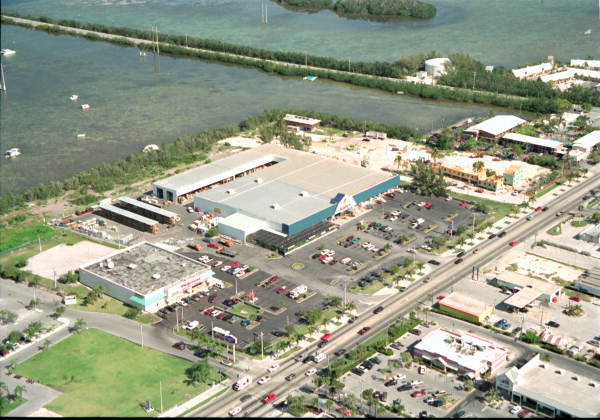
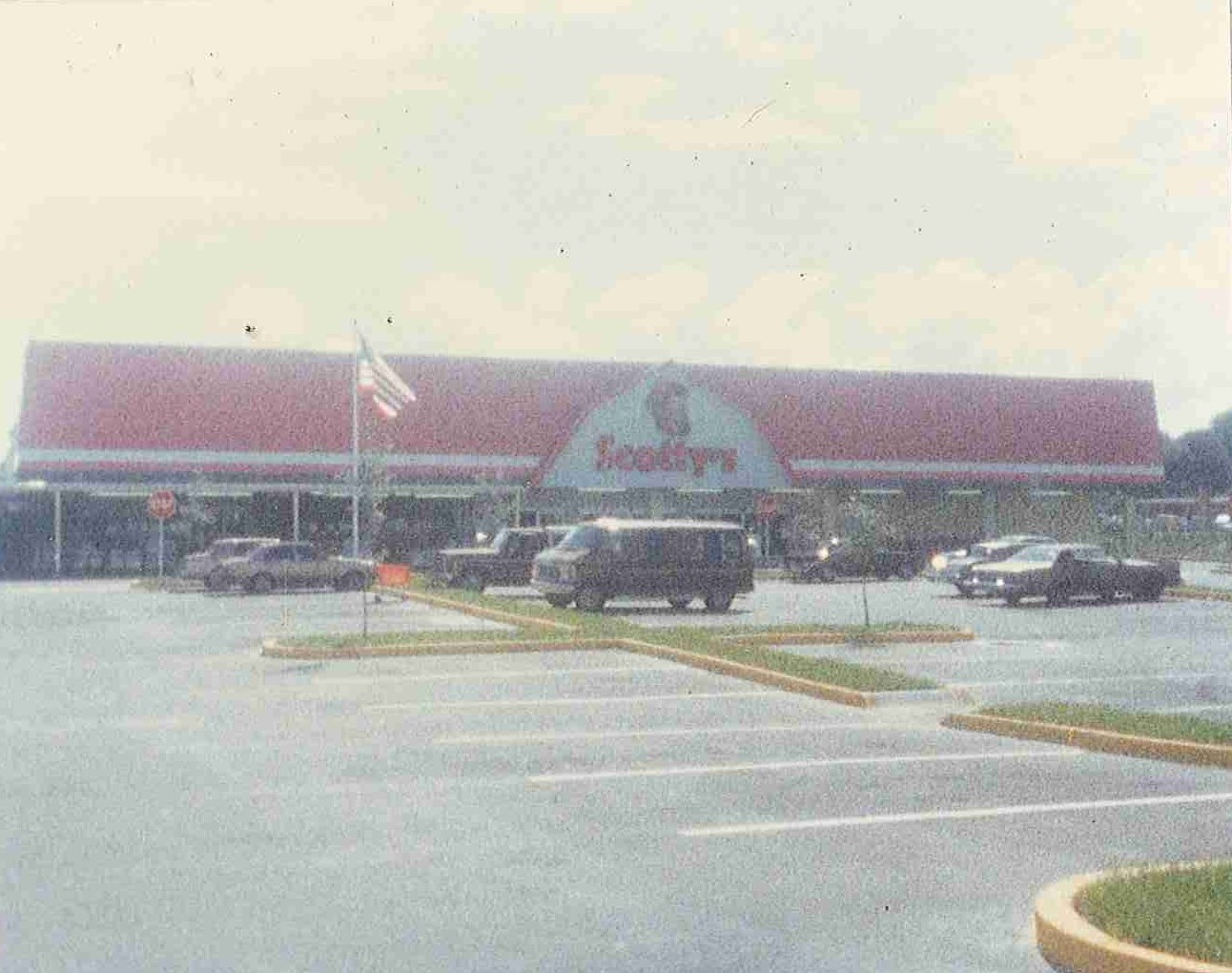
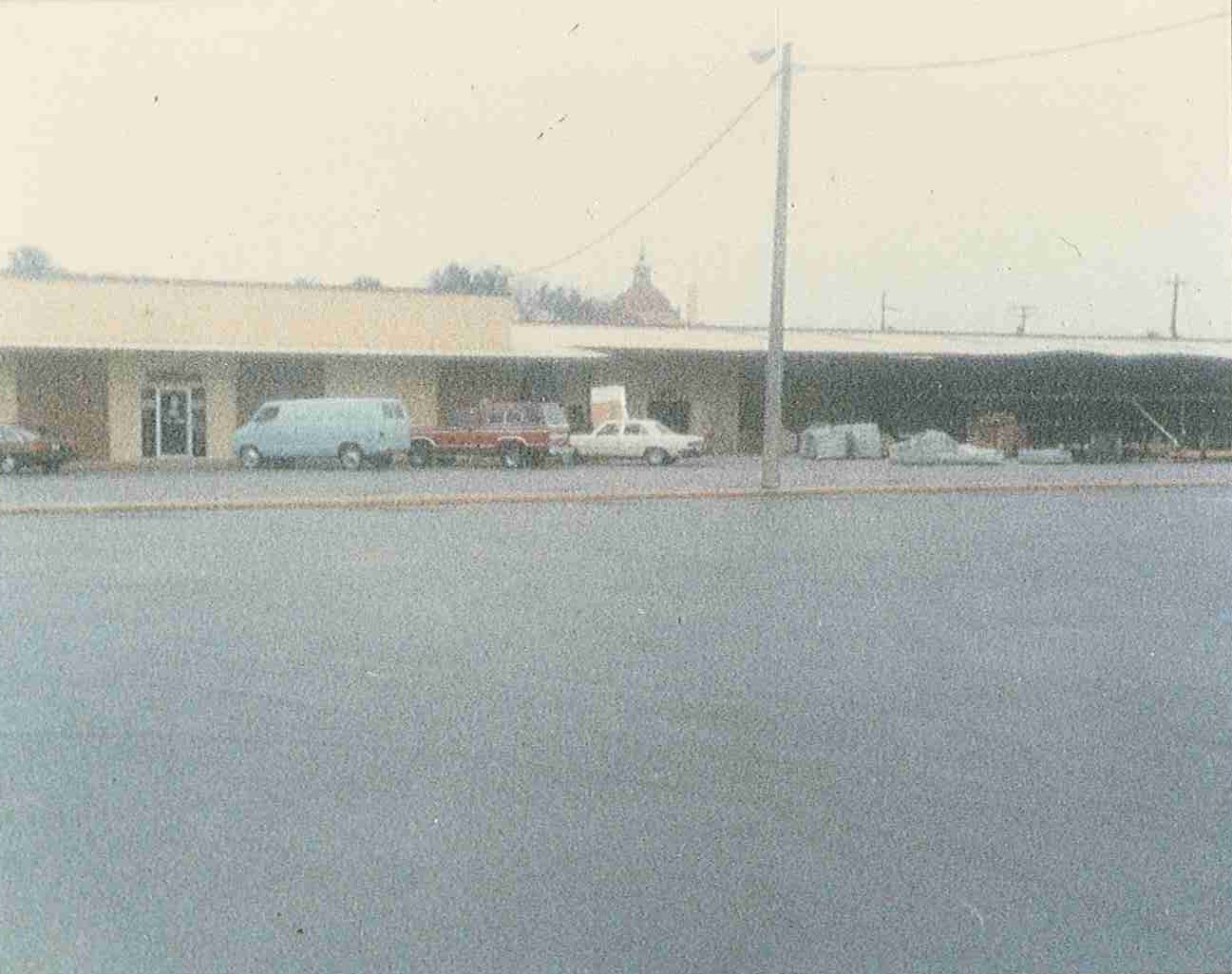
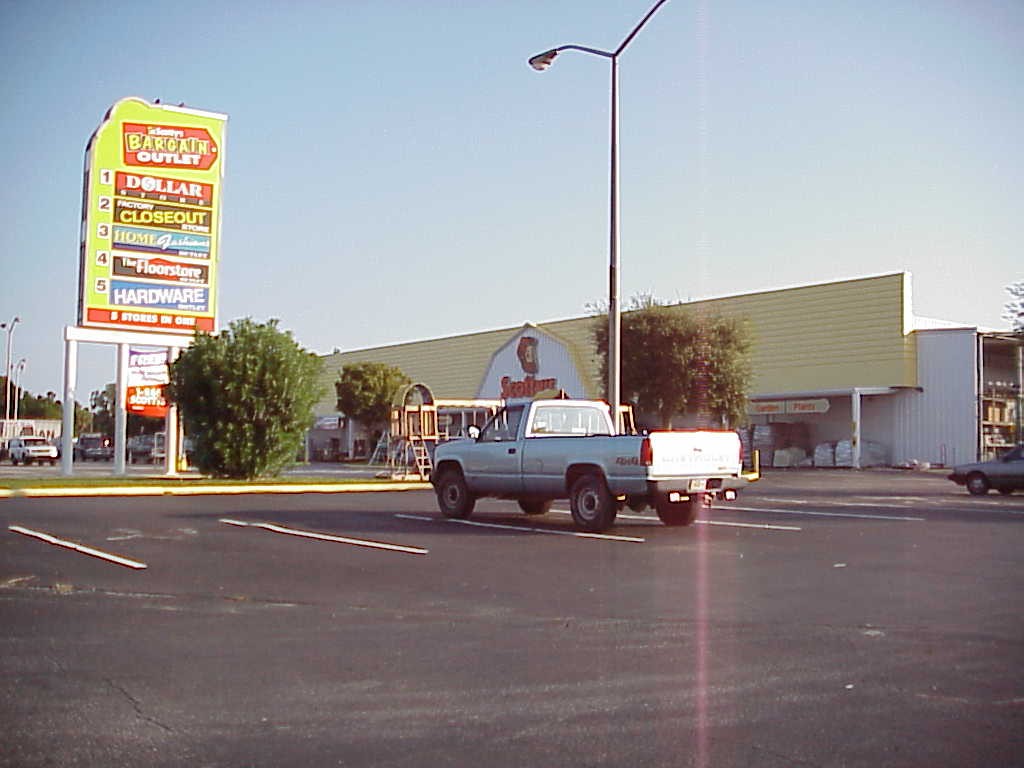

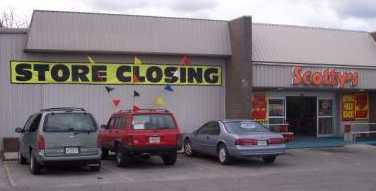
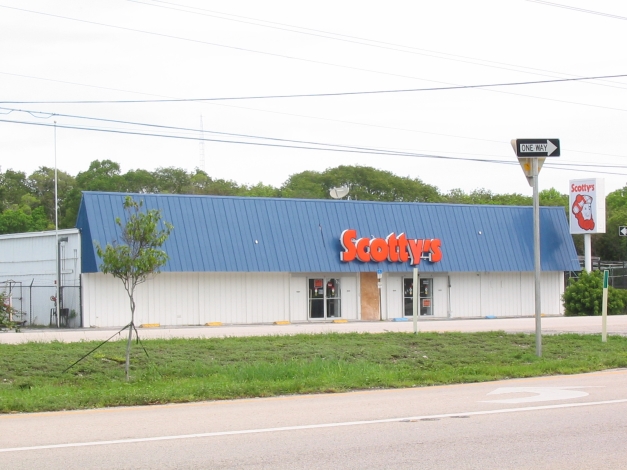
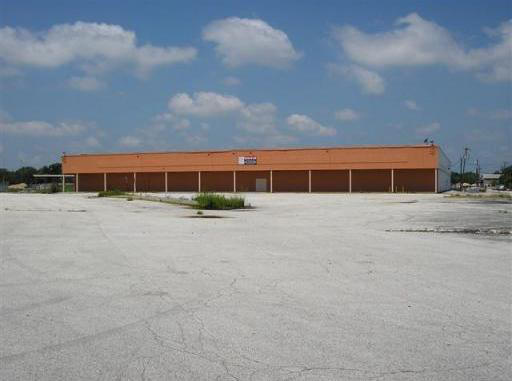
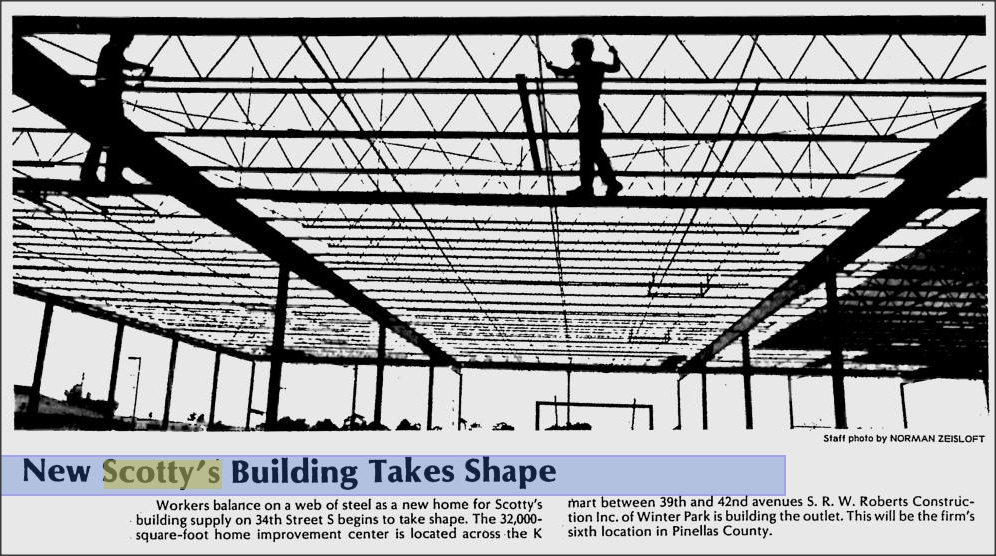

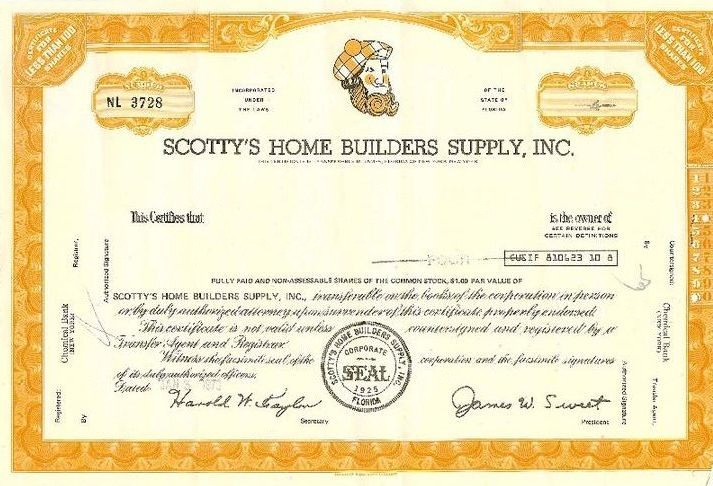
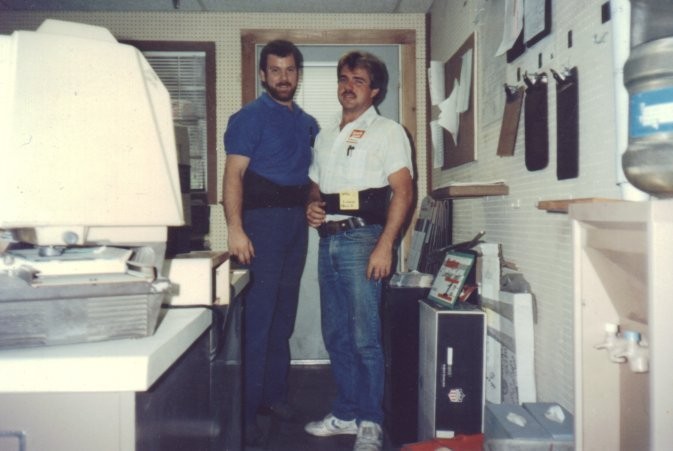
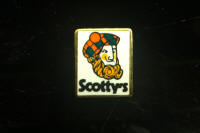

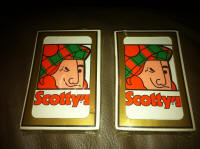
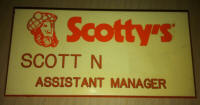


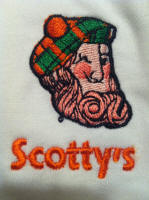
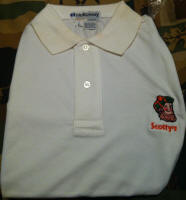
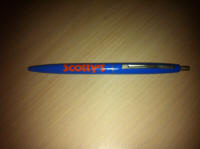
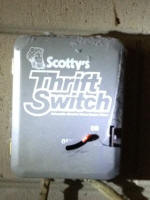

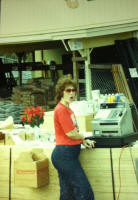
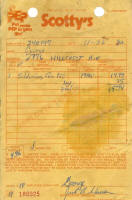
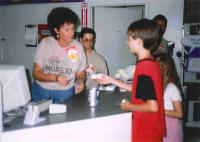
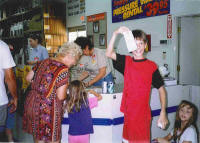
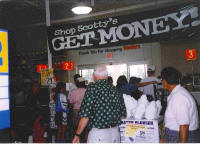
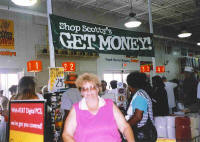
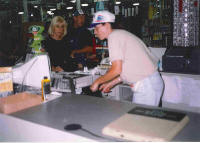
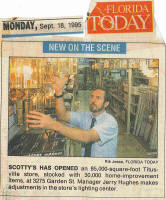
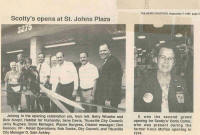
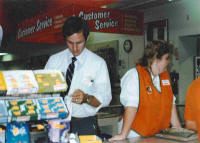
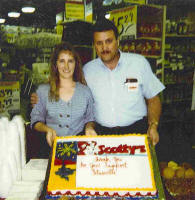
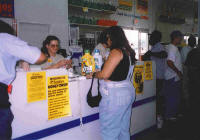
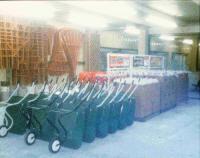
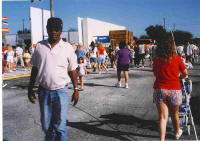




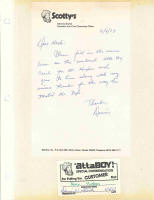
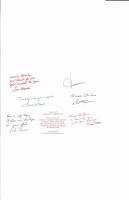

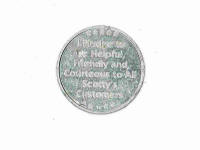
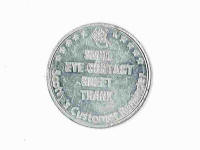

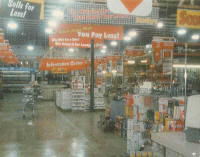
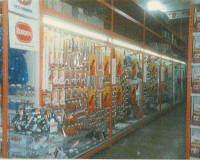
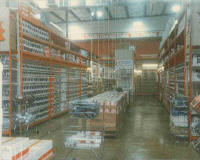
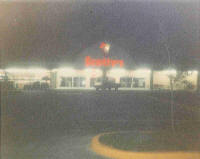

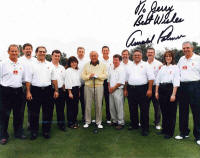
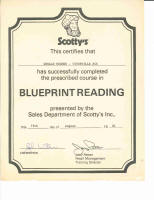
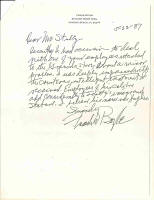
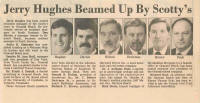
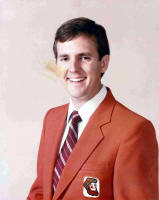
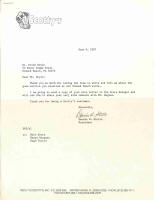
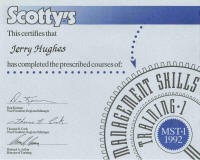


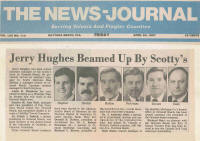


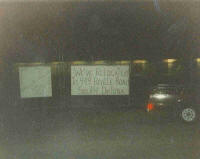
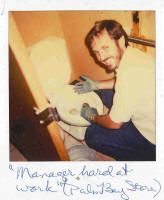
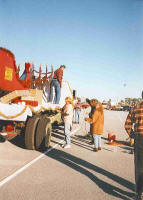
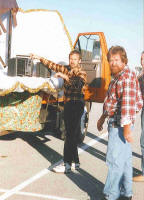
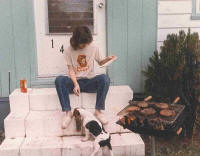
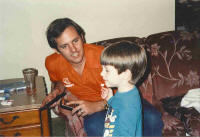
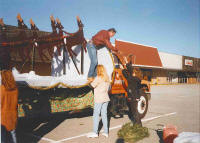







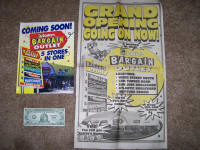

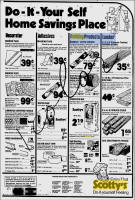
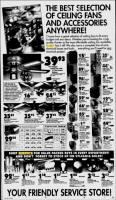
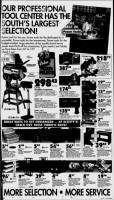
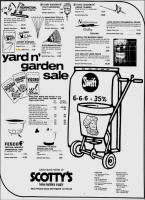
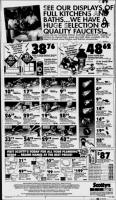
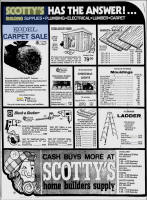
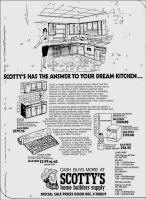
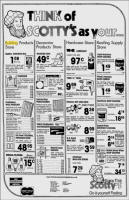
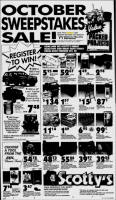
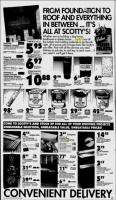
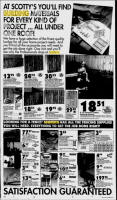
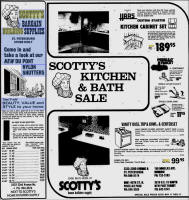
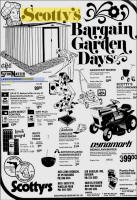

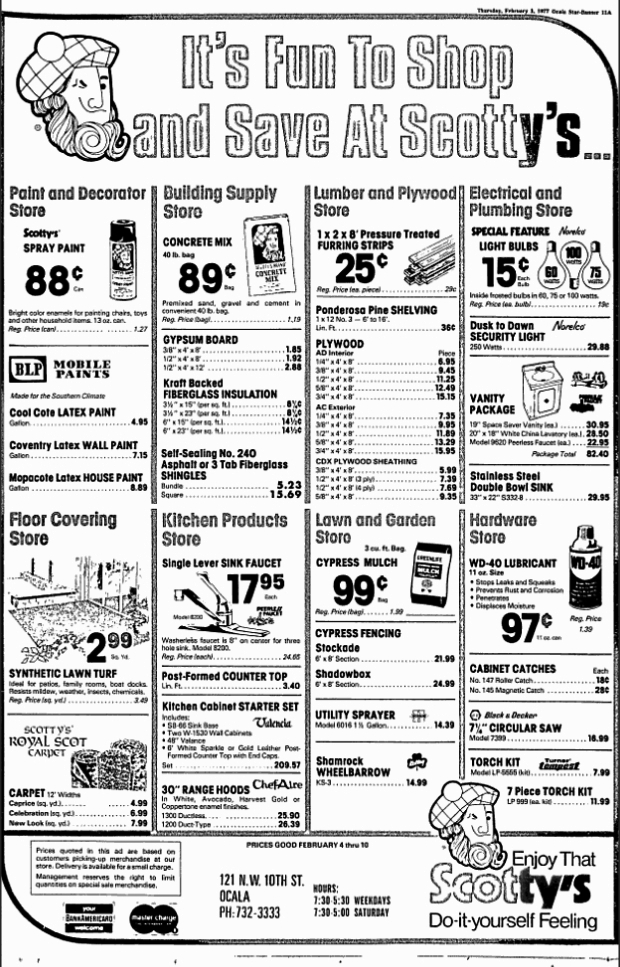



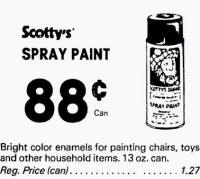
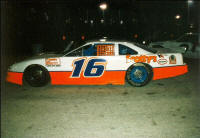

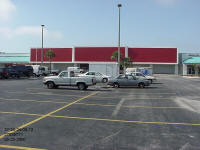

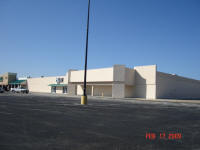



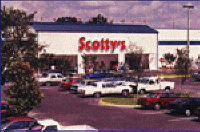
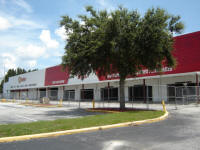

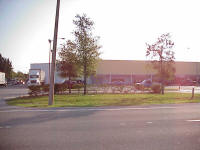
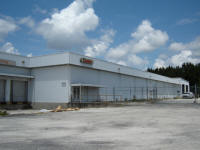
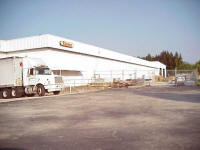
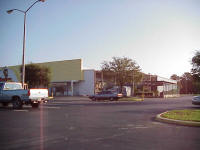
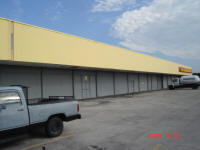
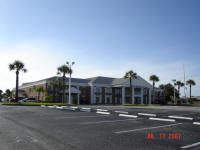





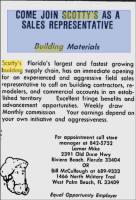
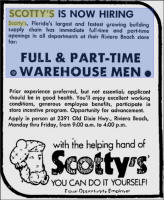
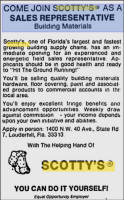

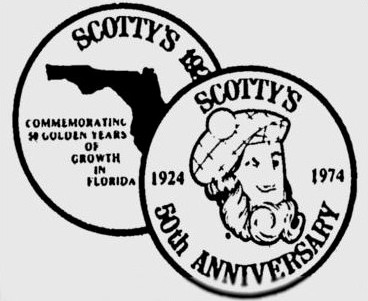
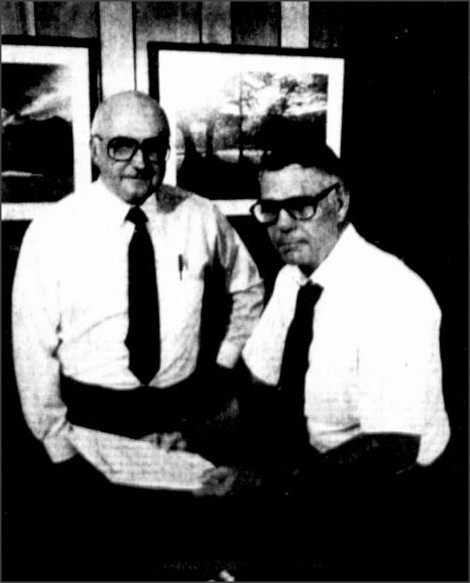

 trademark registered
11/26/1973, expired 11/05/2005
trademark registered
11/26/1973, expired 11/05/2005